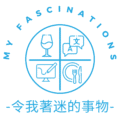Mummy? Maman? 媽媽?
What better place to start our exploration of language than with our mothers?

In Vanity Fair (1848), William Makepeace Thackeray wrote “Mother is the name for God in the lips and hearts of little children”1. This line, which is possibly more famous for being quoted by Eric Draven (played by Brandon Lee) in The Crow emphasises the importance of mothers, while also starting to address the word mother itself.
In semantics, the concept of a mother (biological or otherwise) implies that the word is a linguistic universal, meaning that all languages tend to have a word for this concept, but this doesn’t explain why the word itself sounds so similar in different languages.
Several theories that attempt to address this conundrum, and while they differ, they all highlight the fact that some of the earliest vocal communication was centred around the mother-infant bond. In simple terms, all babies tend to make sounds which are similar, and these sounds tend to include the “m” consonant or ㄇ if you read Zhuyin. It therefore seems likely that these sounds were adopted as the word for mother in otherwise unrelated languages.
Don’t worry if this sounds a little confusing, we’ll be revisiting this idea in more detail later!
- https://www.gutenberg.org/files/599/599-h/599-h.htm#:~:text=Mother%20is%20the%20name%20for%20God%20in%20the%20lips%20and%20hearts%20of%20little%20children%3B ↩︎

